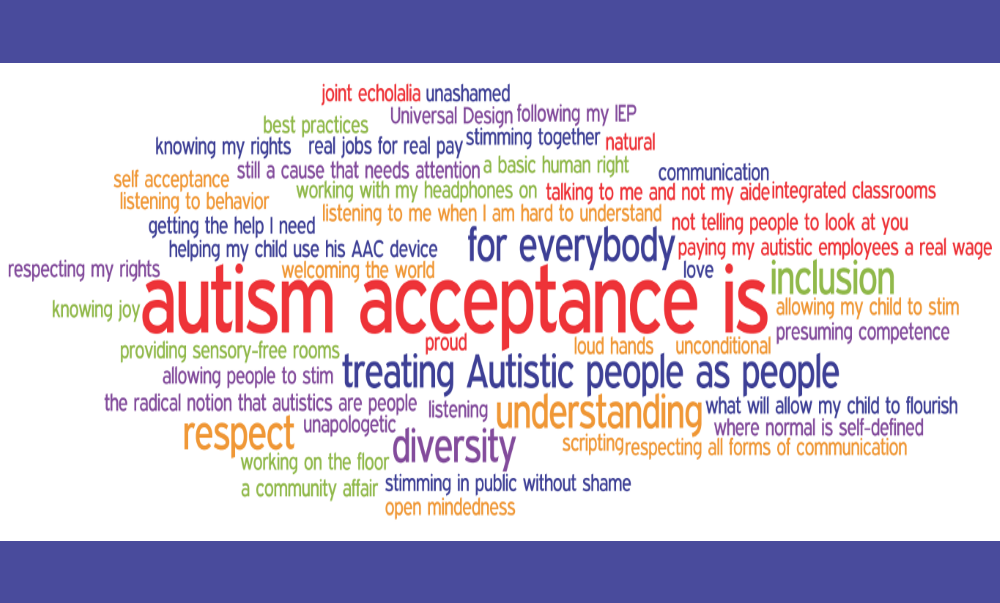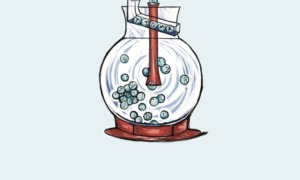My name is Benjamin Adams and I have autism. I was diagnosed with autism when I was 2 years old and have been dealing with its challenges ever since. Throughout my life, I have been extraordinarily lucky to be given a boatload of unique opportunities that helped me get to where I am linguistically and cognitively. I hope with this I can push for policies and programs that allow other families to experience similar, probably even better, opportunities so that others can reach their fullest potential.
The difficulties and challenges of living with autism does not only impact the individual who has the diagnosis; my parents sacrificed mentally, emotionally and financially to make sure I had all the perks I needed to ensure I became a responsible, capable and independent adult. The journey has been hard, but looking back I feel so much could have been done to lessen the burden for my family and thousands of others like mine.
According to the U.S. Centers for Disease Control and Prevention (CDC) and The Autism Society, one in 68 children in the U.S. has disabilities on the autism spectrum (ASD), and it affects more than 3.5 million individuals in the country. ASD and autism are both general terms for a group of complex disorders of brain development.
These disorders are characterized, in varying degrees, by difficulties in social interaction, verbal and nonverbal communication, and repetitive behaviors. ASD can be associated with intellectual disability, difficulties in motor coordination and attention, and physical health issues such as sleep and gastrointestinal disturbances. Some people with ASD excel in visual skills, music, math and art.
Autism Challenges and Family Life
Most of my challenges centered around social interaction and verbal/nonverbal communication. Shortly after I was diagnosed, I started speech therapy at the Los Angeles Speech and Language Therapy Center. For a long time, I struggled with understanding linguistic and social concepts and skills that neurotypical people got naturally.
For example, I had to learn through therapy that a boy is a boy, a girl is a girl, he is for boys, and she is for girls. Another difficult notion to learn was authority — the idea that some individuals like teachers have more authority and knowledge than me in certain environments and circumstances.
At home, my parents — especially my mother — were also my teachers. So many sacrifices were made on my behalf. My mother sold her cruise-line sales company to be with me every day. When I would return home from school, she helped me with homework and supplemented my learning with educational computer games and workbooks that we would do together throughout the year. She would even talk with teachers to create intricate behavior management systems that worked to help shape my behavior, from star charts to checklists and stoplight charts with green for good and red for bad.
During school breaks, my parents would work even harder to scrounge up the money for various summer and extracurricular activities to enhance my education. I participated in speech and study skills camps, as well as science, karate and piano activities.
It may sound grinding — and at the time, I thought it was, but I know now that it was all necessary. I would not be where I am today. I would not be able to speak and write at the level I am doing right now, maintain interpersonal relationships or function independently. And I know I wouldn’t be in my second year at Santa Monica College with plans to transfer to American University next fall.
So what did we sacrifice? Financial security and family time. My father is a police officer, and I didn’t see him much growing up because in order to make sure I had access to high-quality programs and materials he worked tirelessly to impress his superiors to earn promotion after promotion in order to increase his salary. And although she never complained, I could see the toll it had on my mother and their marriage. My little brother got drastically less attention while growing up due to my parents’ attending to my needs; the effects of which can be seen today. Despite the challenges, we were lucky. My parents’ sacrifices paid off. But what about the thousands who are not as fortunate?
Proposal: Level the Playing Field for Autistic Families
I don’t think it is coincidence that I am an intern at Children’s Defense Fund-California, an organization that works to level the playing field for all children, especially poor children, children of color and children with disabilities. And since I started, I’ve been thinking about what the government could do for children, teens and young adults like me. Here are some proposals I’ve come up with:
- A state-sponsored program that would provide financial assistance for families to allow one adult member to quit their job and devote themselves to the care of their disabled child/children, or assign a special educator to come to their home and work one-on-one with their child to help them develop academically, socially, cognitively and linguistically.
- A parenting class for those with disabled children to learn coping strategies and peaceful conflict resolution for dealing with tense situations.
- A grant program to help low-income families with disabled children afford special camps, classes and other helpful extracurricular activities and programs that would help them overcome various handicaps.
- A home education tax credit for families to buy special educational and therapeutic materials that help with their child/children’s development.
- Make diagnostic tests for mental disabilities and illnesses free, preferably by enacting a universal healthcare system.
Wouldn’t it be great if all children had the same access to quality education and resources despite disability or family income? Let’s make it happen.
Benjamin Adams, is a 20-year-old from Los Angeles, currently interning for the Children’s Defense Fund-California, working as a teaching assistant for the Los Angeles Speech and Language Therapy Center, a former leader of Team Bernie LA and a student at Santa Monica College.
































